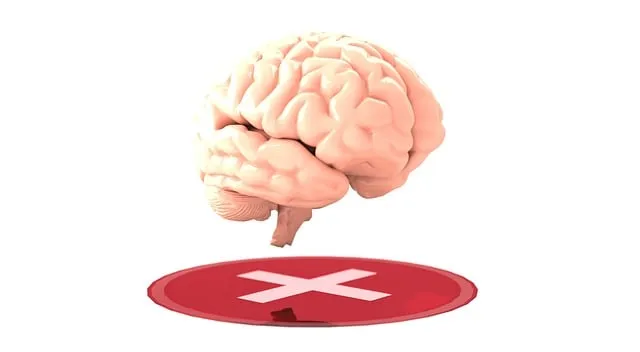In communities like Englewood where access to quality mental health care is limited, stigma prevents many from seeking help. Kaiser Permanente behavioral health providers are at the forefront of combating this through empathy-building techniques, safe space discussions, workshops, and support groups. They empower residents with education and resources, normalizing conversations about mental health. Media representation plays a vital role in reducing stigma by featuring diverse narratives of recovery and success stories from Kaiser Permanente's Englewood providers. Collective action across society, including evidence-based practices and advocacy, is necessary to ultimately eradicate the stigma surrounding mental illness.
Mental illness stigma remains a significant barrier to accessing essential healthcare services, particularly within communities like Englewood where resources are often limited. This article explores various strategies aimed at reducing mental illness stigma, focusing on the unique efforts of Kaiser Permanente behavioral health providers in Englewood. We delve into four key areas: understanding stigma’s impact, the role of healthcare providers, community engagement, and the power of media representation, along with policy advocacy for systemic change.
- Understanding Stigma: A Barrier to Mental Health Care Access for Kaiser Permanente Behavioral Health Patients in Englewood
- The Role of Healthcare Providers in Combating Stigma: Strategies and Practices at Kaiser Permanente Englewood
- Community Engagement: Empowering Folks through Education and Support Networks in Englewood, Focused on Mental Illness
- Media Representation Matters: Shaping Perceptions and Reducing Stigma Through Responsible Reporting of Mental Health Issues
- Policy and Advocacy: Push for Systemic Changes to Eradicate Mental Illness Stigma at Local, Regional, and National Levels
Understanding Stigma: A Barrier to Mental Health Care Access for Kaiser Permanente Behavioral Health Patients in Englewood

In many communities, mental illness stigma remains a significant barrier to individuals seeking help for their behavioral health needs. This is especially evident in areas like Englewood, where access to quality care can be challenged. Kaiser Permanente behavioral health providers in Englewood often encounter patients who are reluctant to discuss their mental health struggles due to fear of judgment or discrimination. Such stigma can lead to delayed treatment, exacerbating existing conditions and hindering overall well-being.
Understanding the root causes of stigma is crucial for developing effective strategies to reduce it. Kaiser Permanente recognizes that building empathy and emotional intelligence among both healthcare providers and the community at large is key to breaking down these barriers. Initiatives aimed at improving communication, fostering understanding, and providing education on mental health can significantly contribute to anxiety relief and encourage individuals to embrace available resources without reservation.
The Role of Healthcare Providers in Combating Stigma: Strategies and Practices at Kaiser Permanente Englewood

At Kaiser Permanente Englewood, healthcare providers play a pivotal role in combating mental illness stigma through innovative strategies and practices. Behavioral health professionals here are trained to foster empathy building strategies that create safe spaces for patients to openly discuss their experiences without fear of judgment. This approach ensures that individuals seeking help feel understood and supported, significantly reducing the barrier to accessing care.
Moreover, the organization hosts regular Stress Management Workshops and implements Emotional Well-being Promotion Techniques as part of its holistic treatment model. These initiatives not only equip patients with coping mechanisms but also contribute to a broader culture shift, normalizing conversations about mental health within the community served by Kaiser Permanente behavioral health providers Englewood.
Community Engagement: Empowering Folks through Education and Support Networks in Englewood, Focused on Mental Illness

In Englewood, community engagement plays a pivotal role in mental illness stigma reduction. Organizations like Kaiser Permanente behavioral health providers have been actively working to empower residents through education and support networks. These efforts focus on enhancing awareness about various mental health conditions, challenging stereotypes, and promoting understanding within the community. By hosting events, workshops, and groups that delve into topics such as stress management, trauma support services, and social skills training, they foster an environment where individuals feel supported and less stigmatized.
Englewood’s vibrant community has embraced these initiatives, creating a tapestry of resources where folks can access not only professional care but also peer support. This holistic approach ensures that mental health services are inclusive, accessible, and tailored to the unique needs of the community. As a result, residents are better equipped to navigate life’s challenges, leading to improved well-being and a stronger sense of belonging.
Media Representation Matters: Shaping Perceptions and Reducing Stigma Through Responsible Reporting of Mental Health Issues

Media representation plays a pivotal role in shaping societal perceptions about mental illness and significantly contributes to stigma reduction efforts. Responsible and accurate reporting by media outlets, including stories featuring Kaiser Permanente behavioral health providers in Englewood, can dispel myths and foster empathy among the public. When individuals with mental health challenges are portrayed as complex human beings rather than stereotypes, it encourages understanding and support. This responsible representation includes sharing success stories, highlighting the effectiveness of treatments like Mood Management and Inner Strength Development programs, and showcasing the recovery journey to destigmatize various conditions.
Furthermore, media can emphasize the importance of Social Skills Training in communities, demonstrating how these initiatives break down barriers and empower individuals to lead fulfilling lives. By presenting diverse perspectives and personal narratives, media outlets have the power to influence public opinion positively, ensuring that conversations around mental health are inclusive and respectful. Such representation is crucial in encouraging those struggling with their mental well-being to seek help without fear of judgment or discrimination.
Policy and Advocacy: Push for Systemic Changes to Eradicate Mental Illness Stigma at Local, Regional, and National Levels

Mental illness stigma reduction requires concerted efforts at every level of society, from local communities to national governments. Advocacy and policy changes play a pivotal role in this process. By pushing for systemic transformations, we can create an environment where mental health is treated with the same urgency and compassion as physical well-being. Organizations like Kaiser Permanente, with their behavioral health providers in Englewood, serve as models for integrating evidence-based practices such as Mind Over Matter Principles and Compassion Cultivation Practices into healthcare delivery.
At the local level, community outreach programs that promote Cultural Sensitivity in Mental Healthcare Practice can foster understanding and reduce misconceptions. Nationally, policies that ensure equal access to mental health services and protect individuals from discrimination based on their mental health status are essential. These collective actions, driven by advocacy groups and supported by healthcare providers like Kaiser Permanente, can lead to significant shifts in societal attitudes, ultimately eradicating the stigma surrounding mental illness.
In conclusion, reducing mental illness stigma is a multifaceted endeavor that involves healthcare providers, community engagement, media responsibility, and policy advocacy. By understanding the barriers like those faced by Kaiser Permanente behavioral health patients in Englewood, implementing effective strategies at the provider level, empowering communities through education and support networks, promoting responsible media representation, and pushing for systemic changes, we can create a more inclusive society where everyone receives the mental health care they need without fear of judgment or discrimination. Engaging in these efforts collectively is crucial to fostering a positive change in how we perceive and address mental illness, specifically within the context of Kaiser Permanente behavioral health providers in Englewood and beyond.






